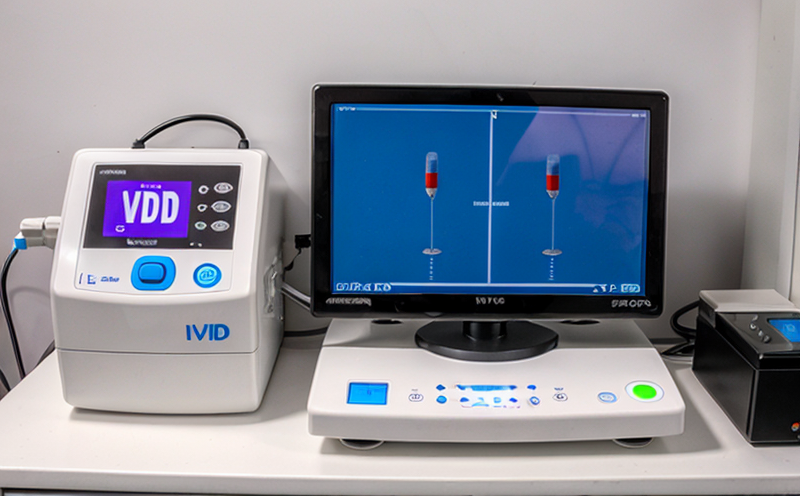Software Data Integrity Testing for IVD Devices
The integrity of software within In Vitro Diagnostic (IVD) devices is paramount in ensuring that results are accurate and reliable. This testing ensures that the algorithms, databases, and other software components operate as intended under a variety of conditions. For quality managers and compliance officers, this service addresses critical aspects of regulatory compliance by validating the robustness and reliability of software within IVD devices.
For R&D engineers, this service offers insights into how to design and implement robust algorithms that can withstand real-world operational stressors. During development, software data integrity testing involves rigorous validation processes that ensure the software functions as expected across different environments. This is crucial for maintaining consistency in results, which directly impacts patient safety.
Procurement teams benefit from this service by ensuring that the devices they source meet stringent quality standards set by regulatory bodies such as the FDA, EMA, and ISO 13485:2016. The testing process involves a series of checks to ensure data integrity, including verifying that the software can handle large volumes of data without corruption or loss.
Data integrity is especially critical in IVD devices because even minor discrepancies can lead to incorrect diagnoses. This service ensures that all aspects of the software are validated, from initial coding through final deployment. The testing process includes emulating real-world scenarios such as network failures, power outages, and other potential disruptions that could affect data accuracy.
The importance of this service cannot be overstated in today’s regulatory landscape. Regulatory bodies like the FDA require manufacturers to demonstrate that their devices meet rigorous standards for software integrity. This testing helps ensure that any device released onto the market is capable of producing reliable results across a range of environments and conditions.
In summary, software data integrity testing for IVD devices ensures that the technology behind these life-saving tools operates reliably and consistently. By validating every aspect of the software, this service plays a vital role in maintaining public health and safety.
Applied Standards
| Standard | Description |
|---|---|
| ISO/IEC 17025:2017 | This standard outlines the general requirements for the competence of testing and calibration laboratories. Compliance with this standard ensures that the laboratory conducting the software data integrity testing is capable of producing reliable results. |
| ISO 13485:2016 | A quality management system standard specifically designed for the medical device industry, ensuring consistent and high-quality products. |
| IEC 62304 | This international standard provides a framework for the software lifecycle of medical devices. It ensures that all stages of development, validation, and maintenance are covered to ensure safe and effective use. |
| Coverage of FDA Regulation | The service is aligned with FDA regulations governing the safety and effectiveness of IVD devices. This includes ensuring compliance with 21 CFR Part 820, which mandates stringent quality assurance measures for medical devices. |
Customer Impact and Satisfaction
The impact of software data integrity testing on customers is significant. By ensuring that the software within IVD devices operates flawlessly, this service enhances customer confidence in the reliability of diagnostic results. This leads to increased patient trust and satisfaction with healthcare providers.
From a broader perspective, reliable diagnostics contribute positively to public health outcomes. When patients receive accurate diagnoses, treatment can begin promptly, leading to better health outcomes. For regulatory bodies, ensuring that all devices meet stringent standards like those outlined in ISO/IEC 17025 and IEC 62304 is crucial for maintaining the integrity of the healthcare system.
For companies providing this service, customer satisfaction comes from knowing that their efforts contribute to better healthcare outcomes. This aligns with the broader goals of improving public health through reliable diagnostic tools.
Competitive Advantage and Market Impact
Adopting robust software data integrity testing offers several competitive advantages in the medical device industry. Compliance with regulatory standards like ISO/IEC 17025:2017 and IEC 62304 not only ensures that devices meet stringent quality requirements but also sets a benchmark for excellence within the market.
Companies that invest in thorough software integrity testing are better positioned to navigate complex regulatory landscapes, reducing the risk of product recalls or non-compliance penalties. This reduces costs associated with rework and can lead to faster time-to-market for new products. By demonstrating a commitment to quality through rigorous testing, these companies can build trust with customers and healthcare providers.
Moreover, the ability to consistently deliver reliable diagnostic results can differentiate a company from its competitors in a crowded market. In an era where public health is increasingly scrutinized by regulatory bodies and consumers alike, this service provides a clear competitive edge.





